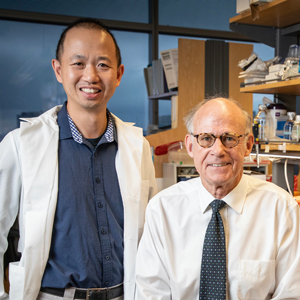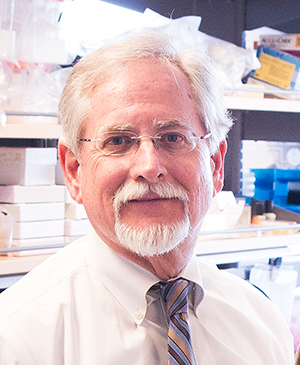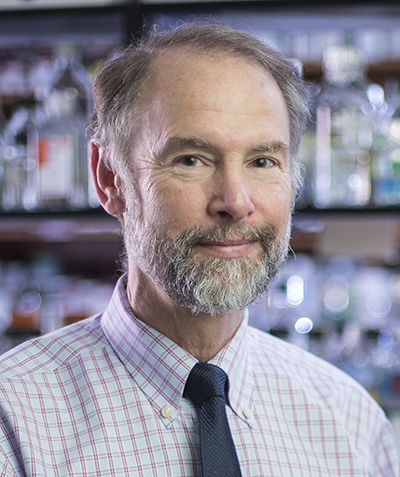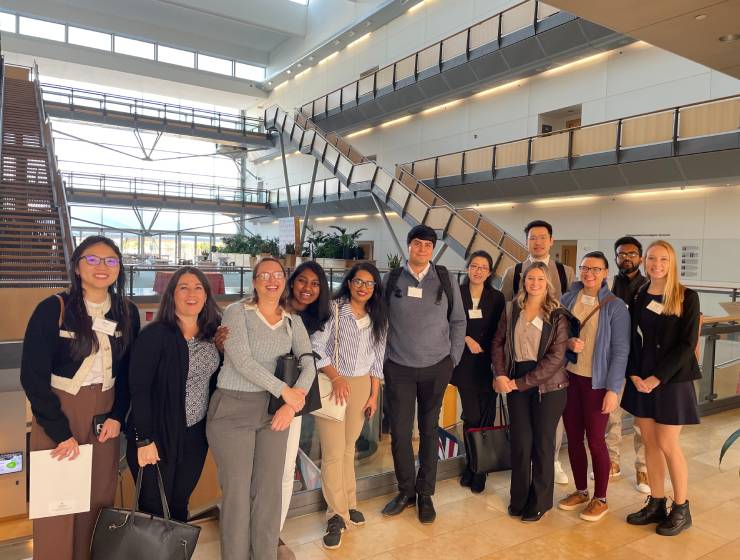Research, News & Discoveries
-

Kit Neikirk named Marshall Scholar; will study at University of Edinburgh and University College London
Kit Neikirk, postbaccalaureate research intern in the lab of Antentor O Hinton Jr., has been named a 2024 Marshall Scholar by the British government. As a Marshall Scholar, Neikirk will pursue a master’s in public health and an advanced degree in biomedical imaging at University of Edinburgh and University College London, respectively. Read MoreDec. 12, 2023
-

Experiencing the Neural Symphony Underlying Memory through a Blend of Science and Art
Neuroscientist Saman Abbaspoor in the Hoffman lab won the NIH BRAIN Initiatve's annual Show Us Your BRAINs! Photo and Video contest. The clip shows how “sharp-wave ripples", different layers of neural activity in the hippocampus, are wirelessly recorded to help study memory. Read MoreDec. 11, 2023
-

Colorectal cancer ‘cartography’ reveals an avenue to improved immunotherapy
Second only to lung cancer, colorectal cancer is the nation’s leading cancer killer — accounting for more than 52,000 deaths in the United States each year. Colorectal cancers are divided into two main groups, based on microsatellites, or repeat sections, in their DNA. Read MoreDec. 11, 2023
-

Study links gene network and pancreatic beta cell defects to Type 2 diabetes
In a collaborative effort co-led by teams from Vanderbilt University Medical Center (VUMC) and the University of Michigan, a comprehensive study that integrates multiple analytic approaches has linked a regulatory gene network and functional defects in insulin-producing pancreatic beta cells to Type 2 diabetes. The study, published Dec. 4 in… Read MoreDec. 7, 2023
-

Potential schizophrenia treatment, discovered at Vanderbilt and being developed by Neumora Therapeutics, entering Phase 1 clinical trial
A potential schizophrenia treatment discovered through the Warren Center for Neuroscience Drug Discovery has been cleared by the U.S. Food and Drug Administration for use in phase 1 clinical trials—the third WCNDD therapeutic to reach that benchmark. “Vanderbilt is proud that a discovery by our researchers at the Warren Center… Read MoreDec. 4, 2023
-

Researchers discover key step to kidney fibrosis
Researchers at Vanderbilt University Medical Center for the first time have shown that activation of the epidermal growth factor receptor (EGFR) is essential for the development of kidney fibrosis, tissue scarring following injury that can lead to kidney failure. Their discovery, reported Nov. 14 in the journal Nature Communications,… Read MoreNov. 22, 2023
-

McLean Receives 2023 Eastern Analytical Symposium award for Outstanding Achievements in Mass Spectrometry
John McLean, Stevenson Professor of Chemistry and Chair of the Department of Chemistry, Associate Provost for Graduate Education, Director of the Center for Innovative Technologies and VICB member, has been named the winner of the 2023 EAS Award for Outstanding Achievements in Mass Spectrometry. Read MoreNov. 21, 2023
-

Vanderbilt’s Dr. W. Kimryn Rathmell to be appointed director of the National Cancer Institute
As director of the NCI, Rathmell will lead the National Cancer Program and the NIH’s efforts to dramatically reduce the prevalence of cancer and improve the lives of cancer patients and their families through research into prevention and cancer biology, the development of new interventions, and the training and mentoring of new researchers. The NCI is the largest funder of cancer research in the world, with a fiscal year budget of $7.3 billion and comprised of approximately 3,500 employees. Read MoreNov. 17, 2023
-

Twelve at Vanderbilt are among world’s highly cited researchers
Two have secondary Basic Science faculty and two are VICB members are among international researchers whose publications rank in the top 1% by citations according to the global analytics firm Clarivate. Read MoreNov. 16, 2023
-

A Snapshot of ASPIRE on the Road in St. Louis
“Looking back, the trip did exactly what I hoped it would: It exposed me to the vast array of career paths available to graduate students like me, from R&D and business management to investing and consulting. The connections I made with my peers, various speakers, and Vanderbilt alums are invaluable as I think about what’s my next step,” said Amy Tran. Read MoreNov. 16, 2023